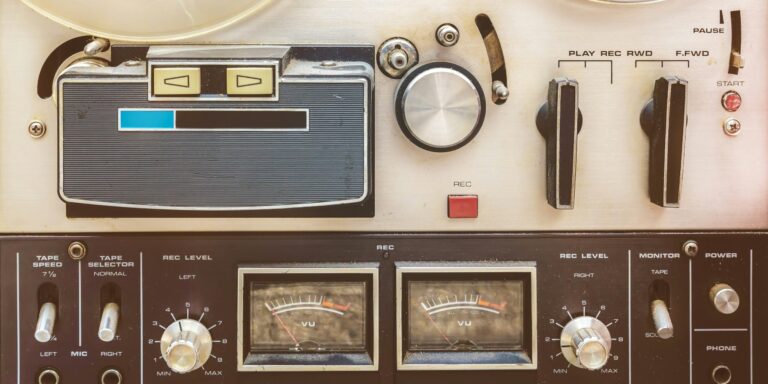May 5, 2025 10:00 PMIn 2025, the traditional path of securing a record label deal seems less critical than ever before. With the rise of digital platforms and the democratization of music distribution, independent artists are increasingly taking control of their careers. No longer reliant on the industry’s gatekeepers, musicians can now distribute their music directly to fans through a wide range of platforms. From Bandcamp to SoundCloud, independent musicians have the tools and opportunities to reach global audiences without needing a record label.
The growth of streaming services like Spotify, Apple Music, and YouTube has undoubtedly shifted the dynamics of the music industry. These platforms offer unprecedented access to music and have made it easier than ever for listeners to discover new artists. However, they are not without their flaws. Many streaming services continue to favor major labels and well-established artists, leaving independent musicians struggling to secure meaningful royalties. The payout per stream remains low, and for most independent musicians, achieving a sustainable income from these platforms is a challenge. As a result, more artists are seeking alternative ways to distribute their music and engage with fans on their own terms.
This shift toward DIY music distribution is being facilitated by a host of online platforms that allow musicians to take control of their careers. Bandcamp, for instance, provides a direct-to-fan distribution model where artists can upload their music, set their own prices, and keep a larger share of the revenue. Similarly, platforms like SoundCloud enable artists to share their tracks and build a fanbase without having to go through the traditional industry channels. In addition, crowdfunding platforms like Patreon have proven invaluable in helping independent musicians connect with their most dedicated fans, offering them the ability to generate consistent income through subscriptions and exclusive content.
For independent artists, these tools provide the freedom to maintain creative control while also directly monetizing their work. Fans, too, benefit from these direct interactions, as they are able to support artists in a more personal and meaningful way. Unlike traditional music distribution models, which often involve intermediaries such as record labels, distributors, and streaming platforms, DIY distribution cuts out the middleman, allowing artists to keep a more significant portion of the revenue generated by their work. In many ways, platforms like Bandcamp and Patreon are reshaping the music industry’s economic structure, enabling musicians to retain creative and financial control.
However, the rise of DIY distribution does not come without its challenges. While platforms like Bandcamp offer better profit margins, they also place the burden of marketing, promotion, and production squarely on the artist’s shoulders. Without the support of a record label’s infrastructure—such as dedicated marketing teams, booking agents, and distribution channels—independent musicians often struggle with the business side of their careers. Many independent artists must juggle creating music with running their own business, managing finances, coordinating marketing efforts, and engaging with fans. This can lead to burnout and overwhelm, especially for musicians who are just starting out or don’t have the resources to build a full-fledged team.
Despite these obstacles, 2025 is witnessing a new trend: independent artists are becoming more entrepreneurial, empowered by the tools and resources available to them. With the ability to distribute music, market their brand, and connect with fans directly, musicians are increasingly taking charge of their careers. They are learning how to navigate the complexities of the music business, from setting up online stores and handling merchandise sales to using social media platforms to build their fanbases and drive engagement. This entrepreneurial spirit is helping to create a new generation of self-sufficient musicians who are able to sustain themselves without relying on traditional industry structures.
In 2025, it’s clear that the future of music is increasingly in the hands of independent musicians. As long as these artists can continue to balance the artistic and business aspects of their careers, they have the potential to reshape the music industry on their terms. By embracing DIY distribution models and utilizing tools like Bandcamp, Patreon, and social media, independent musicians can build sustainable careers that are not dependent on record labels or streaming royalties. The power dynamic in the music industry is shifting, and artists are no longer forced to adhere to traditional business models—they can now define their own path.
As this shift continues, it will be fascinating to see how independent artists continue to innovate and find new ways to generate income and engage with their audiences. While challenges remain, the tools available to musicians in 2025 provide them with the autonomy to take charge of their careers and build successful, sustainable paths in an increasingly digital world.
In conclusion, the rise of DIY music distribution represents a profound shift in the music industry. Independent artists are now empowered to control their own careers, bypassing traditional record labels and distribution channels. While there are hurdles to overcome, the increasing availability of platforms that facilitate direct-to-fan relationships is helping musicians create viable careers on their own terms. As long as these artists can continue to balance creativity with business acumen, they will be well-positioned to reshape the future of the industry.


